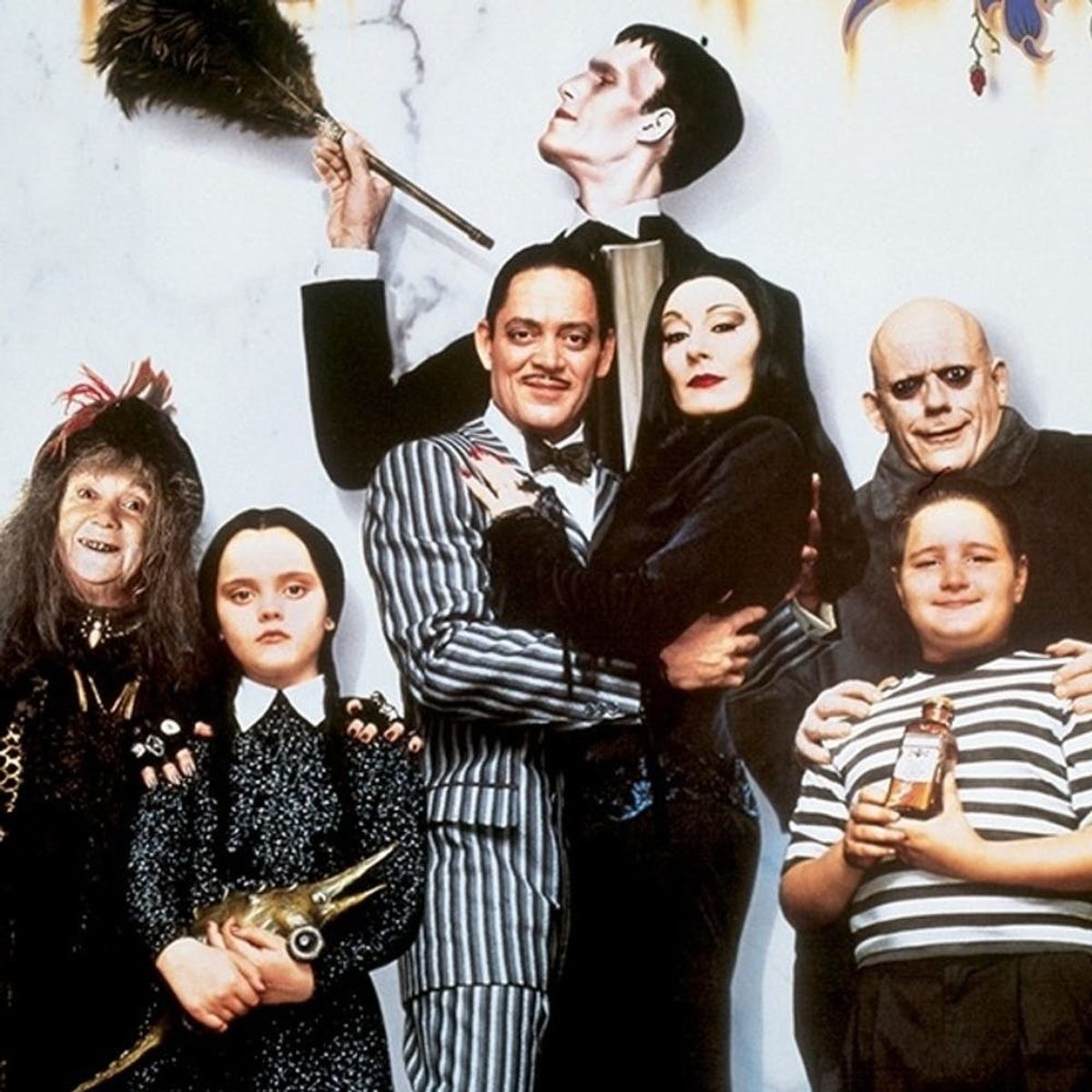’90s Movies You Need to Watch Again As an Adult

The ’90s were a gift we can’t return to. This is especially hard when you think of the movies we loved and the amazing style essentials we flaunted, our beloved Bath and Body Works scents and how calling somebody at home on a landline was an actual pastime and not a reason to end a friendship forever. (JK! Or are we?)
And we can start with the following:
1. Jumanji (1995)
A movie about a board game that wreaks havoc on everybody that plays it? Dark! But let’s focus on the character of Allan (Robin Williams) and his trajectory: After emerging from the game over 20 years after being sent in, he returns to find out the world is terrible and his parents are dead. Which, for a 10-year-old seeing this, is heartbreaking.
But as an adult, it’s even more heartbreaking when you realize how often we’ve missed out on saying the things we’ve wanted to people we can’t anymore. It’s “Call Your Parents” 101, a beginner’s class in “just say sorry for being a jerk.” Even though at 10 years old, I personally thought it was all about Kirsten Dunst’s braids.
2. Now & Then (1995)
Behold: a legitimate tragedy. While we watched this movie as kids, tweens, or actual teenagers, we focused on the adventures of Teeny, Roberta, Samantha and Chrissy while comparing ourselves to our favorite character. (Case in point: I was Teeny because I was blonde and also often inappropriate with my sense of humor.)
But as an adult, it’s much bleaker. Not only is Now & Then a movie about a young woman who’s yet to come to terms with her mother’s tragic death, it unites the characters as grown-ups to prove that while friendship can help sustain you through a tough life, it by no means prevents it from happening.
3. Richie Rich (1994)
You’re laughing, and I know this, but hear me out. Yes, Richie Rich is a movie based on a comic book about a little boy and his family who have more money than any of us here can even dream of. And yes, he has an amusement park in his garage. But while the action scenes and kidnapping plot grabbed our attention as children, most of us rolled our eyes at the lesson that money couldn’t buy happiness, and that only the most sentimental objects populated the Riches’ vault.
But as grown-ups? That’s too real. Especially when you think of how most of us have come to see money (as a major point of stress). The Rich family opts out of stress by completely abandoning the idea of equating material goods to happiness. Mr. and Mrs. Rich reminisce about their relationship while stranded at sea. Richie just wants to have normal friends to play baseball with. And even the family’s staff is treated like, well, family. So while it’s still a kids’ movie made for children, it still drives home that point that money isn’t everything.
4. Toy Story (1995)
The first full-length Pixar film, Toy Story explores themes of jealousy, replacement and unconditional love in a way that’s easy to follow — thanks especially to leads Woody and Buzz (who are toys voiced by celebrities, yes).
But as kids, jealousy for most of us was limited to the addition of a new family member or somebody at school. We could relate to Woody and Buzz’s rivalry because we’d all felt left out before… but I don’t know many kids who related to Woody’s willingness to manipulate as a way of cementing Andy’s love. He seemed excessive. Paranoid. Petty. And then we all grew up.
Enter adulthood and the constant fear forever of being replaced. I mean, hi — most of us are afraid of being replaced at work. Some of us worry about our place in certain social circles. Which makes another term for adulthood, “The era in which we’re always afraid.” So, to watch Toy Story now, we see the tale of an employee who’s about to be ousted at work. We see him worry about the cooler, newer model who has a better understanding of certain programs or can work as a team better and get better results. And then we watch him spiral as he’s unable to articulate what’s wrong or why he’s afraid because vulnerability is terrifying. Woody is basically just the ultimate grown-up. And he doesn’t get that he works for a place that values all types of personalities and that there only needs to be one robot. (The actual robot.)
5. The Addams Family (1991)
Back in ’91 (the memories!) we knew The Addams Family was different, both the film and of course the family it was named for. We thought it was funny and great and wonderful that they didn’t care about standing out and still came out on top. Some of us knew it was based on a TV show, and some of us could only watch it at our neighbors’ because our parents thought it was “too old” for us for some reason. All of us wanted to be Wednesday Addams because Christina Ricci rules the ’90s, clearly.
But what we missed as kids is super valuable now: While we all knew the Addams were different, we skipped what those differences meant. Morticia and Gomez fell in love because each were individuals (seriously, their love is so REAL), and they raised their kids to be the same. Morticia doesn’t police Wednesday or Pugsley, and she celebrates their eccentricities without pressuring them to change. Basically, The Addams Family is a guide to life. And if someone has a problem with the way you’re living yours, you can make them feel weird by wearing all black and impersonating Anjelica Huston.
Which of these films have you re-watched as a grown-up? Spill @BritandCo!
(Featured photo via New Line Cinema)











